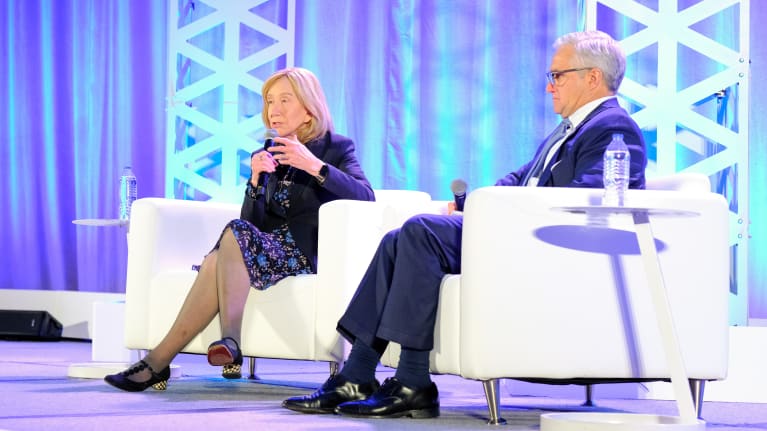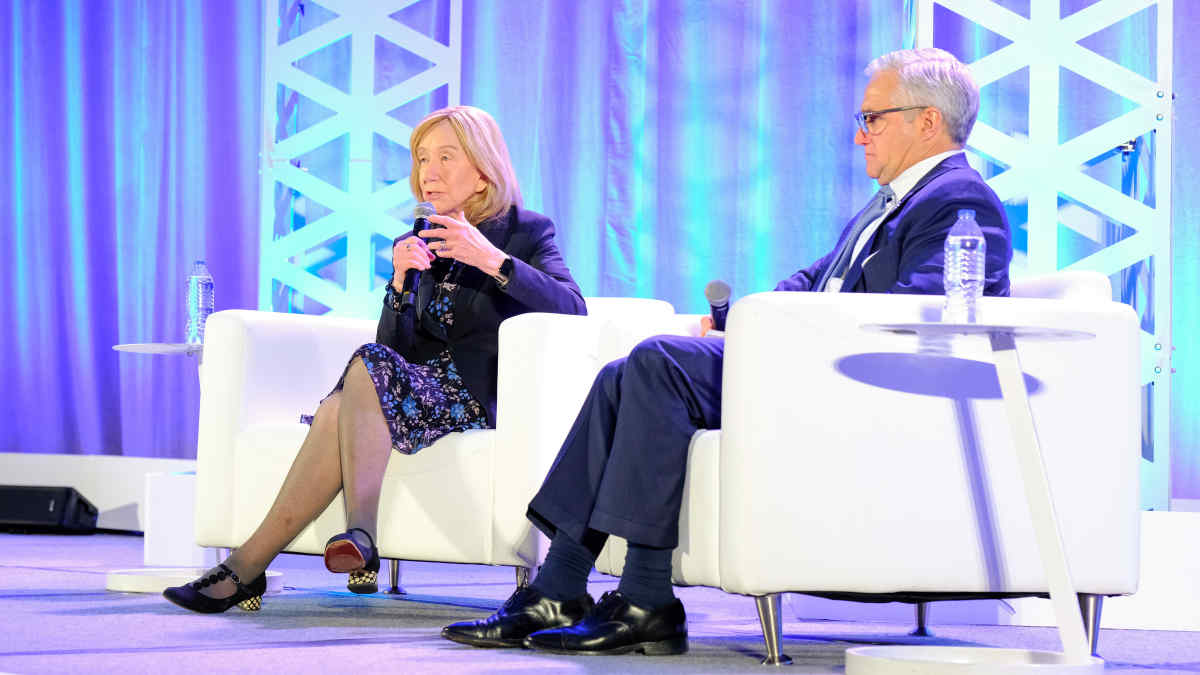

There’s a lot of truth in the Shakespeare quote “What’s past is prologue”—the idea that history can lay the groundwork for the present.
Doris Kearns Goodwin, a presidential historian and Pulitzer Prize-winning author, referenced multiple historical anecdotes and lessons that relate to current challenges during a session Feb. 28 at the SHRM Employment Law & Compliance Conference 2023 in Washington, D.C.
Goodwin shared stories from a few of the U.S. presidents she has written about the most: Abraham Lincoln, Theodore Roosevelt and Franklin Roosevelt.
The discussion with Goodwin was moderated by Mike Aitken, chief membership officer at SHRM.
Not ‘The Worst of Times’
Goodwin dispelled the notion that the U.S. is going through the worst part of its timeline, something one may presume after consuming much present-day media.
“This is not the worst of times,” she said. “If we look back at history, we have lived through really tough times—the Civil War, the Great Depression. We emerged from each of these crises with greater strength.”
Goodwin added that Americans can take a certain solace from history by remembering that “because of the will of the people and the leaders we had,” things got better.
“The hope is that we get to write the next chapter of our story. That’s our responsibility, even with all the anxieties we’re living with today,” she said.
The Importance of Diversity
Referencing U.S. history, Goodwin spoke about the value of diversity in any organization and in society at large. She recounted how Theodore Roosevelt deliberately sought out people from different walks of life when he was forming the Rough Riders cavalry unit during the Spanish-American War.
“He brought Harvard graduates and the Somerset Club crowd together with cowboys and woodsmen,” she said. Roosevelt made them eat and live together during the campaign, and a successful unit was formed from that camaraderie.
In addition, Lincoln famously made up his Cabinet of political rivals after he was elected president. “It was a rather contentious Cabinet, but it meant that he had the opinions of the different factions in the North right there with him,” Goodwin said.
Leadership Lessons
Goodwin gave examples from these three former presidents that can be applied to the practice of current people leadership.
First, Lincoln practiced recognition. “He said, ‘People love compliments.’ He wrote hundreds of letters thanking people for things they had done. That goes a long way,” she said.
As for Theodore Roosevelt, Goodwin noted, “During a time that was riveted by socialism and conservatism, [he] proposed his famous Square Deal,” a centrist ideology that could bring people across the political spectrum together.
Lastly, Franklin Roosevelt tried to bring a collective sense of belonging to the country during the crises of the Great Depression and World War II. “He tried to make the home front feel as if it contributed to the war. In any workplace, if you can get everyone to feel like they are a part of a larger mission, that goes a long way,” she explained.
Goodwin said that ultimately, empathy is the most important quality leaders—or anyone—can have. Empathy is simply being “able to listen to other people’s points of view, understand them and absorb them,” she said. “Most people develop empathy by experiencing other people’s ways of life.”
She noted that when Theodore Roosevelt first arrived at the New York state Legislature, he was a more conservative politician, believing that government should not be regulating private enterprise. But after witnessing the poor working conditions at cigar factories, he changed his mind and became a champion of housing and workplace reforms.
Coming Together
Even though Goodwin is very optimistic about the future of the U.S., she is worried about the seemingly growing political divide and “[t]he feeling that as Theodore Roosevelt warned against, democracy will be in peril if people from different regions and parties began to see each other as ‘the other’ rather than as common American citizens.”
“Empathy is one way to deal with that,” Goodwin said. She added that building a national service model would be another good idea, “so kids from one region could meet people from other regions” and experience life somewhere else to better understand each other’s ideas.

